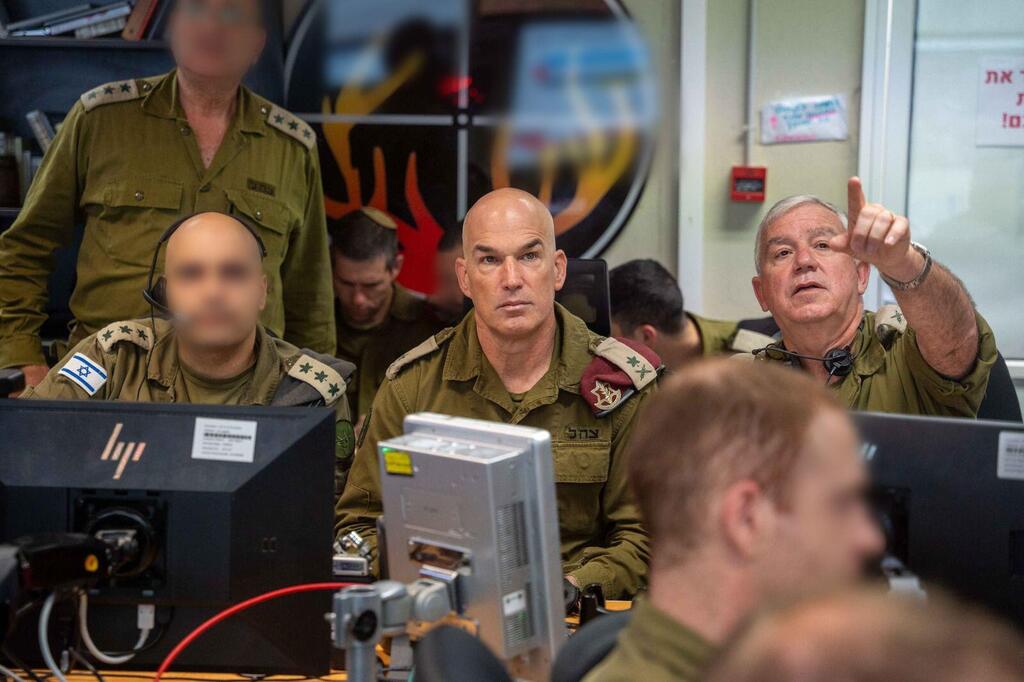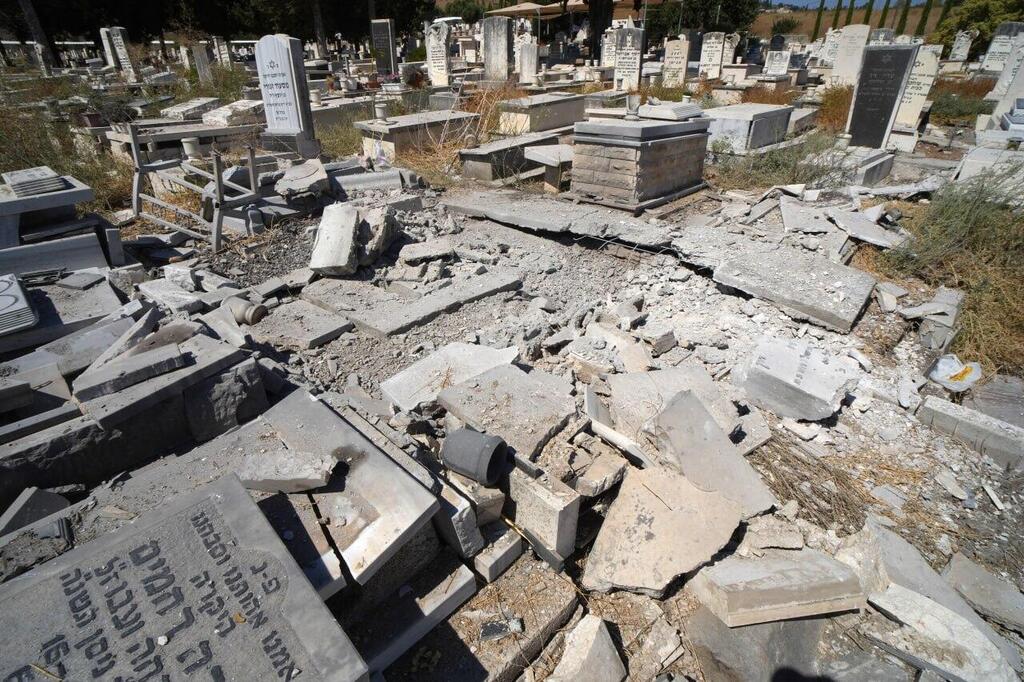Getting your Trinity Audio player ready...
School children fleeing rocket fire in northern Israel
Northern Command head Maj. Gen. Ori Gordin told local leaders Monday evening that residents of frontline communities near the Lebanese border could begin returning to their homes in phases within a month, sparking backlash from participants who called the timeline unrealistic.
The meeting, which lasted about 90 minutes, was held amid escalating military operations. Earlier that day, the Israeli Air Force conducted a major strike on over 120 targets in southern Lebanon in just one hour. Additional airstrikes targeted Hezbollah positions in Beirut’s Dahieh district, with about 200 targets hit in total by day’s end. Explosions from southern Lebanon were visible from the northern Israeli city of Nahariya and echoed as far as the Greater Haifa region.
3 View gallery


Kibbutz Sa'ar home takes direct impact from Hezbollah rocket
(Photo: Jack GUEZ / AFP)
A few hours after the meeting, long-range rockets were fired from Lebanon toward central Israel, marking the fourth such attack on central Israel since the start of the war, which began on October 7.
The IDF also issued new restrictions on southern Lebanon, prohibiting vessel movement south of the Awali River and warning of potential naval operations against Hezbollah. Shlomi and other border communities in the Western Galilee were declared closed military zones.
Local leaders expressed frustration after the meeting, particularly regarding Gordin’s comments on returning residents. "He talked about short timelines, suggesting it could happen within weeks to a month, but only for communities not right along the border," one participant said. "It sounded overly optimistic."
Kiryat Shmona Mayor Avichai Stern, who did not attend the meeting, dismissed the notion of an imminent return. "No one is coming home until the threat is fully eliminated," Stern said, urging the military to focus on winning the war and leaving decisions about the return of residents to political and municipal leaders. "We are not returning until there is full security in Kiryat Shmona and a plan for the city's reconstruction is approved."
David Azulay, head of the Metula Council, attended the meeting and said that while the IDF presented significant military achievements, the timeline for residents' return seemed unrealistic. "In my opinion, it is still far off, especially for my community," he said.
Municipal leaders also voiced concerns about confidentiality breaches. Moti Hatiel, head of the Rosh Pina Council, expressed disappointment that details from the meeting were leaked, calling it "irresponsible" and damaging to trust between military and civilian officials.
Meanwhile, the Fighting for the North movement, representing hundreds of displaced families, sharply criticized Gordin's focus on a return timeline. "We will not accept anything less than a complete security overhaul, including reaching the Litani River and establishing a buffer zone," the group said in a statement, warning against halting military operations prematurely.
The IDF, in response, said it is working to ensure the safe return of northern residents according to directives from the political leadership. The military emphasized that while Gordin mentioned preparations for the possibility of residents returning, no specific timeline was promised.
Get the Ynetnews app on your smartphone:








